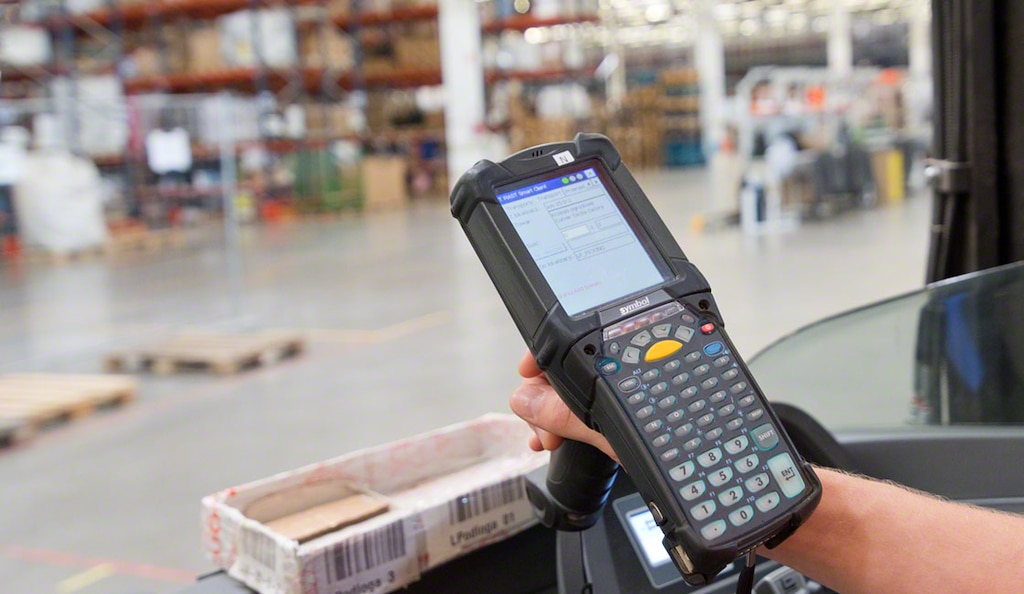
Keys to flexible logistics
Today, logistics requires flexible processes capable of adapting to market changes and fluctuating product demand. Companies’ logistics planning should be prepared to deal with unforeseen events that could affect operations such as storage, picking, and goods dispatch.
Factors like the consolidation of omnichannel logistics, product seasonality, and returns management have led many businesses to enhance their logistics flexibility to be more competitive.
What is logistics flexibility?
Flexible logistics consists of your ability to adapt operations and processes in your warehouse or distribution center to changes and unforeseen events without altering business performance.
From the creation to the sale of a product, there are multiple stages where disruptions can occur. These can prevent your supply chain from functioning as it should, resulting in a temporary shortage of raw materials, for example. A disruption refers to any contingency event or alteration that prevents logistics activity from being carried out correctly in one or several supply chain phases.
Flexibility is a logistics attribute related to elasticity. This describes the ability to expand or reduce warehouse resources to adapt to changes such as increased orders or higher production line output. To boost flexibility in logistics and thus minimize the impact of disruptions on warehouse throughput, it’s vital to guarantee seamless communication between your organization, suppliers, and end customers. In this environment, process digitization plays a significant role. Implementing a digital supply chain fosters the consolidation of flexible operations: the company shares all information flows in real time across the chain, ensuring product traceability and facilitating flexibility in goods control.
When managing orders digitally with a program such as a warehouse management system (WMS), the software reorganizes dynamics in the facility to optimize resources and considerably boost the productivity of logistics operations.

Benefits of flexibility in logistics
Having a flexible logistics model in your facility brings advantages such as:
- Better adaptability to market changes: flexible logistics lets you adapt your resources in an agile way to deal with market changes, i.e., product seasonality and unexpected variations in demand.
- Efficient picking and production: with flexible production and logistics planning, you can maximize your throughput on the production lines and in order picking. You’ll also have raw materials and stock on hand at all times to be able to dispatch orders.
- End-to-end visibility: a digital management program enhances flexibility and guarantees total traceability of goods. In addition, it provides accurate information in real time on the performance of the different supply chain operations.
In short, flexible logistics enables you to offer more efficient service to end customers in line with their demands and needs. New consumer standards — e.g., quick commerce (q-commerce) and omnichannel logistics — have driven flexibility in warehousing to meet changing customer demands.
Types of flexibility in logistics
The term flexible logistics doesn’t refer to a single approach — it concerns the different processes that take place inside and outside a facility. Here are some of the most important types of logistics flexibility in the supply chain:
- Flexibility in supply chain design: consists of having solutions and systems that lend themselves to flexible logistics planning adapted to the multiple market requirements. This is the case of just-in-time supply and production strategies, for instance.
- Flexibility in resource management: involves close monitoring of goods and locations in the warehouse to ensure stock availability in the event of unexpected changes in product demand. Digital management allows you to have safety stock and avoid stockouts.
- Flexibility in logistics processes: refers to the capacity to alter logistics strategies such as picking and putaway to adapt to changes in demand or in SKU turnover. Implementing management software means that these processes will be organized effectively.
Flexibility is a key attribute in all supply chain stages: having flexible logistics and production processes guarantees the availability of stock for end customers. At the same time, it limits cost overruns in manufacturing, transportation, and storage.

WMS, a cornerstone of flexible logistics
Digitizing your warehouse processes increases inventory accuracy and fosters more flexible logistics operations. Logistics facilities equipped with an advanced WMS software program like Easy WMS operate with real-time information on the status of stock, movements in the facility, and incoming orders.
In a context of increased complexity in logistics — owing to omnichannel retail, same-day delivery, and product returns — digitizing your warehouse operations promotes efficiency, flexibility, and scalability. A WMS improves flexibility in logistics processes such as goods receipt, dispatch, and warehouse slotting. Using a set of rules and criteria programmed in advance by the logistics manager, the software organizes replenishment, taking into account factors like product seasonality and turnover.
A flexible slotting strategy is decisive in industries like food and retail, where seasonality determines the sales volumes for each product. Interlake Mecalux’s Easy WMS features the advanced Warehouse Slotting Software functionality, which suggests new product locations based on demand. Additionally, for facilities that manage online orders, the software has the WMS for Ecommerce module. This enables you to scale up operations when there are peaks in demand.
Implementing warehouse management software gives you control over your goods in real time. It ensures inventory availability and safety stock of the multiple SKUs stored in your facility. To have flexible operations in your warehouse, your management software should also be scalable. Modern WMSs facilitate scalability by offering their functionalities via cloud computing technology: software as a service (SaaS). This allows for a variable number of licenses based on demand volume or specific market needs.
Logistics flexibility for an Industry 4.0 warehouse
Flexibility is essential for coping with new logistics challenges. Omnichannel has made logistics operations much more complex. It’s increased the number of SKUs in warehouses, promoting product seasonality and consolidating delivery within tight lead times. Against this backdrop, a facility with flexible processes is fundamental. It allows you to provide efficient logistics service and improve your competitiveness.
Interlake Mecalux has a wide range of technology solutions to boost warehouse throughput. They run the gamut from modern WMS software to the latest technologies in warehousing and internal goods transport. Interested in boosting efficiency in your logistics facility? Be sure to contact us. One of our expert consultants will advise you on the best solution for your company.
